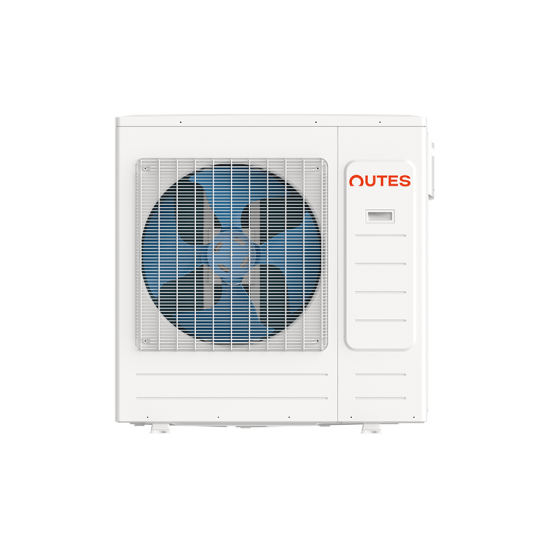How Do Commercial Heat Pumps Work?
Mar. 07, 2024
In today's ever-evolving technological landscape, commercial heat pumps have emerged as indispensable assets for businesses looking to optimize their heating and cooling systems. These innovative devices utilize cutting-edge technology to efficiently transfer heat from one location to another, offering a cost-effective and environmentally friendly solution for maintaining comfortable indoor temperatures. In this comprehensive guide, we delve into the inner workings of commercial heat pumps, shedding light on their functionality and benefits.

How Do Commercial Heat Pumps Work?
At the heart of every commercial heat pump lies a sophisticated mechanism designed to leverage the principles of thermodynamics. Unlike traditional heating and cooling systems that rely on the combustion of fossil fuels, heat pumps operate by transferring heat energy from the air or ground to the desired area. This process is facilitated by a refrigerant that cycles through the system, undergoing phase changes to absorb and release heat.
Evaporation and Compression
The Water Heat Pump begins its cycle by absorbing heat from a low-temperature heat source, such as outdoor air or underground reservoirs. This heat is absorbed by the refrigerant, causing it to evaporate and transform into a low-pressure vapor. The vaporized refrigerant is then compressed by a compressor, significantly increasing its temperature and pressure.
Heat Exchange
Once the refrigerant reaches high pressure, it passes through a condenser coil located inside the building. Here, the hot vapor releases its heat energy to the indoor environment, raising the temperature and providing warmth. As the refrigerant loses heat, it condenses back into a liquid state, ready to restart the cycle.
Expansion and Reversal
After releasing its heat, the condensed refrigerant passes through an expansion valve, where its pressure is reduced, and it returns to a low-pressure state. This allows the refrigerant to absorb more heat from the external environment, completing the cycle. In the case of reversible heat pumps, the direction of the cycle can be reversed to provide cooling during warmer months, making them versatile solutions for year-round comfort.
Applications and Considerations of High Head Slurry Pumps
Air to Water Heat Pump: Revolutionizing Heating Systems
Optimizing Home Comfort: A Comprehensive Guide to Monoblock Heat Pumps
How Often Should I Inspect My High Pressure Lined Slurry Pump?
Advantages of Commercial Heat Pumps
Energy Efficiency
Can you use an airless sprayer without a filter?
Key Questions to Ask When Choosing a Water Pump Body Casting Vendor
Key Questions to Ask When Choosing a Valve Plate Supplier
One of the primary advantages of commercial heat pumps is their exceptional energy efficiency. By harnessing renewable heat sources such as ambient air or geothermal energy, these systems can deliver substantial savings on energy bills compared to traditional heating methods. Additionally, China heat pumps produce fewer greenhouse gas emissions, contributing to a greener and more sustainable future.
Versatility
Another key benefit of commercial heat pumps is their versatility in operation. Whether it's heating a large office space or cooling a retail store, these systems can adapt to various environments and requirements with ease. With reversible heat pumps, businesses can enjoy seamless transitions between heating and cooling modes, maximizing comfort year-round.
Reduced Operating Costs
By leveraging natural heat sources, commercial heat pumps can significantly reduce operating costs for businesses. With lower energy consumption and minimal maintenance requirements, these systems offer long-term savings and a compelling return on investment. Additionally, government incentives and rebates may be available for businesses implementing energy-efficient heating solutions, further enhancing cost savings.
Environmental Sustainability
In an era of increasing environmental awareness, Monobloc heat pumps stand out as eco-friendly alternatives to traditional heating systems. By minimizing reliance on fossil fuels and reducing carbon emissions, these systems help businesses reduce their environmental footprint and contribute to global efforts to combat climate change. Embracing heat pump technology is not only a sound business decision but also a responsible choice for the planet.
Conclusion
As businesses seek to optimize their operations and reduce their environmental impact, commercial heat pumps emerge as invaluable assets for sustainable heating and cooling. With their energy-efficient performance, versatile operation, and environmental benefits, OUTES heat pump systems offer a compelling solution for businesses of all sizes. By understanding the mechanics and advantages of commercial heat pumps, businesses can make informed decisions that drive efficiency, savings, and sustainability.
Featured content:How to Choose the Best Valve Plate Exporter?
10 Tips You Should Know about Gardening for Beginners
Essential Valve Parts for Japan's Industrial Needs
How to Choose the Best Bearing Shelve for Sale
Why Choose Bevel Gears for Mining Cone Crushers?
Top Bevel Gear for Mining Cone Crusher Vendor 2024
Essential Forklift Tips for Safe Construction Site Operations
311
0
0
All Comments (0)
Previous: Air to Water Heat Pump: Revolutionizing Heating Systems
Next: Applications and Considerations of High Head Slurry Pumps
Related Articles
If you are interested in sending in a Guest Blogger Submission,welcome to write for us!










Comments